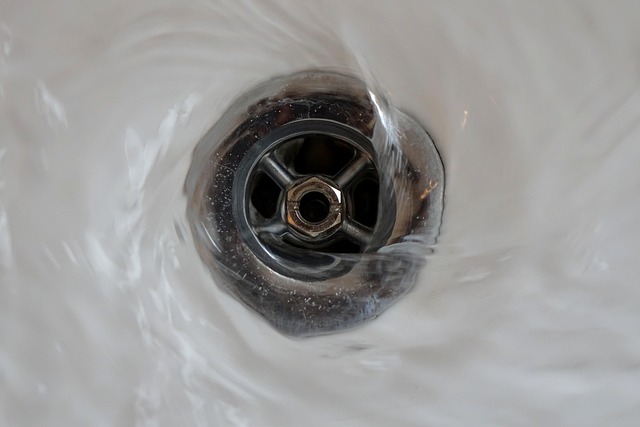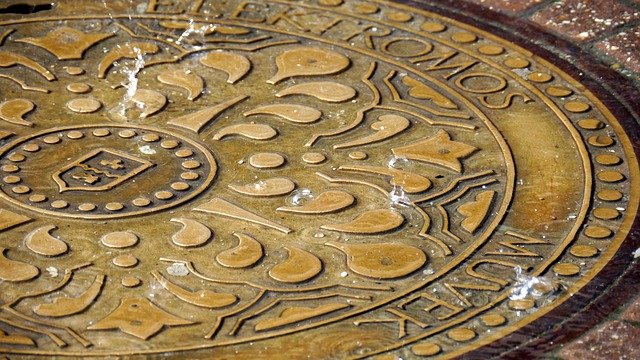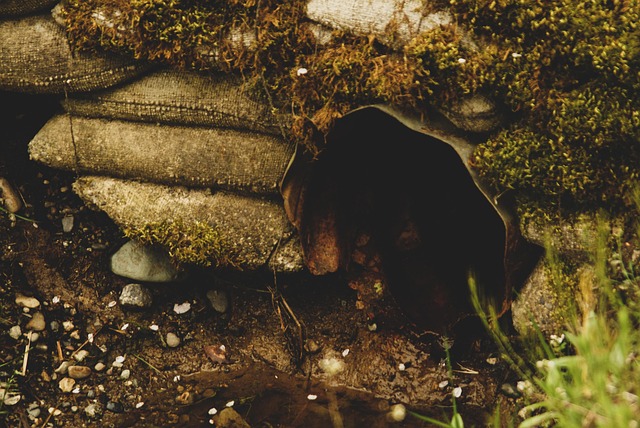Homeowners should be vigilant about recognizing early signs of drain clogs (Signs of a Clogged Drain), such as slower water drainage, gurgling noises, and foul odors, to prevent costly plumbing emergencies. Regular maintenance, including hot water cleanses, avoiding certain waste disposal items, using drain covers, and periodic professional inspections with video technology, can help keep drains clear and reduce the risk of water damage, mold growth, pest infestations, and low water pressure caused by blockages.
Are you tired of that persistent gurgling noise or the growing concern over sudden sink backflows? These might be signs of a hidden drain clog, a problem that can escalate if left unattended. This article dives into the scary reality of what lurks in your pipes and provides essential insights on recognizing common drain clog symptoms. By understanding these telltale signs, you’ll learn the potential dangers of ignoring clogs and gain effective strategies for maintenance and prevention, ensuring smooth-running drains.
- Recognizing Common Drain Clog Symptoms
- The Potential Dangers of Ignoring Clogs
- Strategies for Effective Drain Maintenance and Prevention
Recognizing Common Drain Clog Symptoms

Many homeowners often overlook the subtle signs of a drain clog until it becomes a full-blown emergency. Recognizing the common symptoms early on is crucial to preventing severe plumbing issues. One of the most noticeable Signs of a Clogged Drain is a significant decrease in water drainage speed. Whether it’s your kitchen sink, bathroom, or shower drains, if you notice that water is taking an unusually long time to clear away, there might be a clog forming. Another common indication is gurgling noises coming from the drains. This occurs when air attempts to pass through the blocked pipes, creating a vibrating sound.
Additionally, foul odors wafting from your drains are never a good sign. If the stench persists even after cleaning or using drain cleaners, it could be an indicator of organic matter buildup caused by a clog. Some clogs also result in water backing up into the sink or tub, which can lead to overflows and potential water damage. Pay close attention to these red flags, as prompt action can save you from costly plumbing repairs and headaches down the line.
The Potential Dangers of Ignoring Clogs

Ignoring signs of a clogged drain can lead to serious plumbing issues and potential hazards in your home. When a drain becomes obstructed, it’s not just an inconvenience; it can cause water backup and overflow, leading to damaged walls, floors, and even mold growth. Over time, these clogs can get worse, requiring more extensive and costly repairs.
The buildup of grease, hair, and other debris is often the culprit behind clogged drains. If left unattended, these obstructions can attract pests like roaches and rats, posing health risks to you and your family. Additionally, severe clogs may result in reduced water pressure throughout your home, affecting your daily routines from showering to cooking. Recognizing the signs of a blocked drain—such as slow-draining sinks or toilets, gurgling sounds, or bad odors—is crucial for preventing these problems and maintaining a safe living environment.
Strategies for Effective Drain Maintenance and Prevention

Regular drain maintenance is key to preventing clogs and keeping your plumbing system in top condition. Start by adopting simple, proactive strategies: incorporate a regular cleaning routine using hot water and mild detergent, especially after cooking or washing clothes. Avoid pouring grease, coffee grounds, or large food particles down the drain—these can harden and cause blockages. Use drain covers to catch hair and other debris, and consider investing in a drain snake for occasional DIY uncloggings.
Additionally, scheduling periodic professional drain inspections is beneficial. Plumbers can identify potential issues early on using video inspection technology, clearing minor clogs before they turn into major problems. Remember, recognizing the signs of a clogged drain—like slow drainage, gurgling sounds, or bad odors—is crucial; acting promptly on these signals can save you from costly and inconvenient plumbing emergencies.
Identifying the signs of a clogged drain is crucial for maintaining a hygienic living environment. By recognizing symptoms early, you can avoid potential health hazards and costly plumbing emergencies. Regular drain maintenance and preventive measures are key to keeping your pipes clear and efficient. Stay vigilant, address clogs promptly, and protect your home from the hidden dangers lurking in your pipes.
